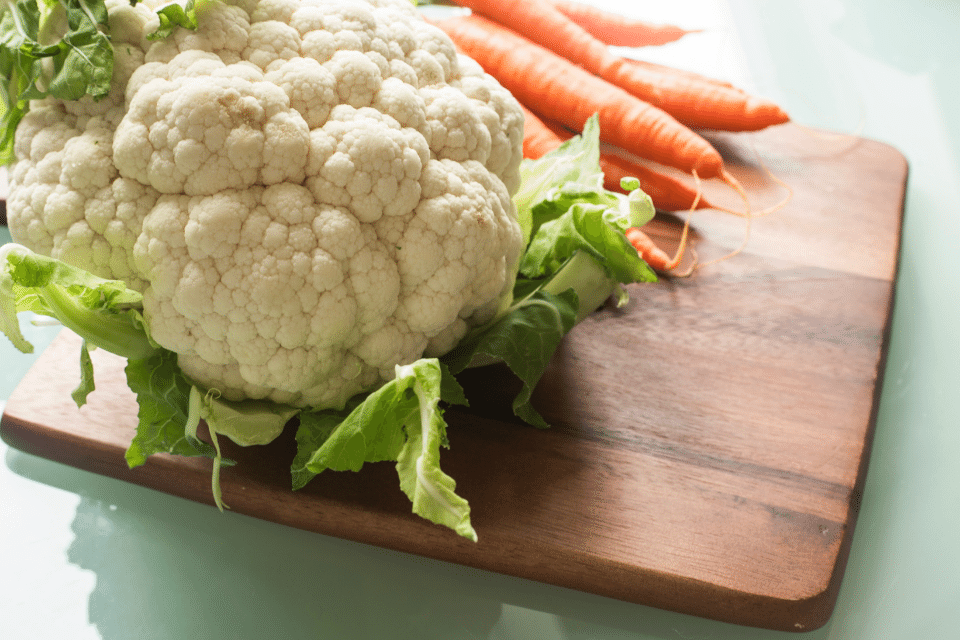If you suffer from irritable bowel syndrome (IBS), it may feel like you need to avoid all of the foods you love. It can surely be frustrating trying to pinpoint what your IBS food triggers are! The Low FODMAP diet can help you identify common IBS food intolerances, but it often takes time to get through. FODMAPs are fermentable carbohydrates found in many of the common foods that you eat. The idea behind the diet is that you eliminate high FODMAP foods by swapping them out for low FODMAP alternatives, then slowly reintroduce them. While you may ultimately need to implement some dietary and lifestyle changes, the goal of the elimination diet is to discover which ones are necessary. It’s also recommended to work with a Registered Dietitian or another knowledgeable healthcare practitioner when implementing the diet, as it can be restrictive if done incorrectly. If you’re desperate to find IBS symptom relief and haven’t met with a dietitian yet, here are 5 dietitian-approved IBS swaps to try.
- Dairy vs. lactose:
Changing to a dairy-free diet is a popular recommendation for irritable bowel syndrome (IBS) and other digestive issues. It might be unnecessarily restrictive for IBS, though. If you consume a lot of dairy products, consider swapping them out for lactose-free products, in place of traditional milk, yogurt, or ice cream. Lactose-free means that the product is still made from dairy products (i.e. cow’s milk), but it contains the enzyme lactase to help break down the sugar lactose. A good clue about possible lactose intolerance is a lack of symptoms from eating certain cheeses like cheddar or swiss. Many kinds of cheese contain very low amounts of lactose that do not cause IBS symptoms or digestive issues. - Gluten vs fructans:
Gluten-free diets have been popular for some time now, but are they really beneficial for irritable bowel syndrome (IBS)? While some people with digestive disorders truly need to avoid gluten, particularly those with celiac disease or non-celiac gluten sensitivity, most studies that look at IBS and gluten say no! It turns out that it’s actually the short-chain carbohydrate fructan that is causing many people digestive distress. Fructans can be found in food items made from whole grains like wheat bread, pasta, and couscous. However, fructans are also found in garlic, onion, beets, and Brussels sprouts! Before becoming a gluten-free IBS foodie, take a look at how often you’re eating some of the above products. Some people find more IBS symptom relief by eliminating or limiting garlic and onion as opposed to whole grain products. Try substituting garlic-infused olive oil for chopped-up garlic during cooking to see if this has any benefit. You still get the same flavor, but no uncomfortable IBS symptoms! - High-fat foods:
Many people with irritable bowel syndrome (IBS) are sensitive to high-fat foods like fried chicken or french fries. This is because fat may overstimulate your gut. Try making some of your favorite fried foods in an air fryer or reducing portion size. - Cruciferous vegetables:
Cruciferous vegetables include cauliflower, broccoli, Brussels sprouts, and cabbage. These are naturally gas-producing foods due to the carbohydrate raffinose. Having some gas after eating these foods is a completely normal part of digestion, but still uncomfortable! The first tip is to choose cooked over raw, as this typically makes them easier to digest. Second, cut down on your portion size and frequency. While broccoli and certain types of cabbage have reasonably low FODMAP serving sizes, cauliflower does not. Stay away from all cauliflower foods (i.e. cauliflower pizza, rice, etc) if you have IBS or digestive issues like abdominal pain, and see if this makes a difference! - Sugar alcohols:
Sugar alcohol (a polyol) is often a big offender when it comes to bloating and diarrhea. If you’ve been following the keto diet and are confused about why you have a sudden increase in your IBS symptoms, this may be why! Sugar alcohols are commonly found in foods labeled as “sugar-free”, “keto” or “diet”. Look out for them on an ingredient list by searching for words that end in “ol”. You can read more about sorbitol, a type of sugar alcohol, here. Other foods that contain naturally occurring sugar alcohols are stone fruits (peaches, plums, cherries, etc.), watermelon, and cauliflower. You should pay attention to fruit juices and prepared dishes that contain these ingredients as well as merely the whole fruits. If you are eating many of these items, try swapping them out for fruit like strawberries or grapes.
While the low FODMAP diet can be complicated, working with a Registered Dietitian will help alleviate some of the stress. For a more complete guide to navigating the diet, check out this handy food list. Remember, there is not a one size fits all approach to finding relief for your irritable bowel syndrome (IBS) symptoms! It’s important to take into account the frequency of your IBS symptoms, how often you eat these foods, and in what quantities. The goal is to provide the maximum IBS symptom relief with a minimal amount of change to your overall diet and quality of life!


